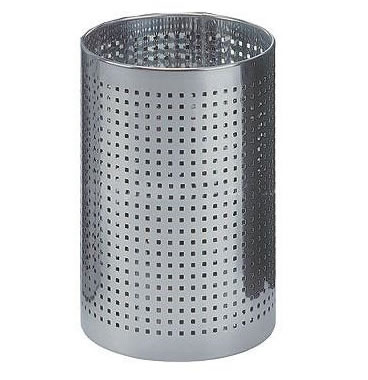

Materials for perforated tubing include aluminum, stainless, carbon steel, galvanized steel, titanium and other metal alloy materials. All hole shapes & spacing, round, square, slotted are available. Tubing is available for many applications including plumbing, electrical, pneumatics & more
Carbon steel is the most corrosive and therefore, the least expensive of the three most commonly perforated metals.
Aluminum, like Stainless Steel, is corrosion resistant. It is much lighter and softer than Stainless and Carbon Steel.
Common stainless steel types for perforating include:
Stainless Steel 304
One of the most widely used general-purpose stainless steels. It possesses an excellent combination of strength, corrosion resistance and fabricates well. To reduce carbide precipitation when welding, use 304L for its lower-carbon content.
Stainless Steel 316
Superior corrosion resistance compared to other 300 series alloys when used in used harsh corrosive environments (ex. sea water, chemicals, etc.). To reduce carbide precipitation when welding, use 316L for its lower-carbon content.
Stainless Steel 321
Titanium stabilized stainless steel to prevent inter-granular formation of chromium carbide. It exhibits strength characteristics superior to those of 304 stainless, thus making it best suited for parts which cannot be subsequently annealed.
